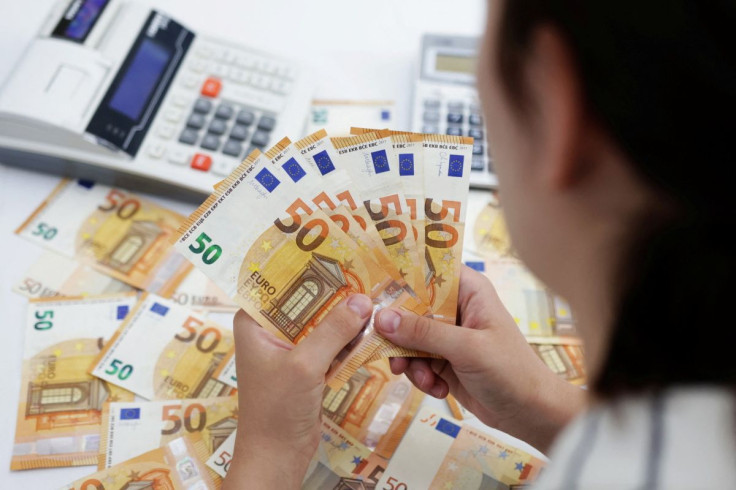Euro Rises Vs Dollar After ECB Hikes Faster Than Flagged

The euro jumped against the U.S. dollar before paring gains in a choppy session on Thursday, after the European Central Bank (ECB) delivered a 50 basis point rate hike to tame inflation in its first rate increase since 2011.
The ECB raised its benchmark deposit rate to 0%, breaking its own guidance for a 25 basis point move as it joined global peers in jacking up borrowing costs.
"In firing this resounding opening salvo, the ECB demonstrated flexibility and a willingness to move beyond its own forward guidance, suggesting that monetary policy hawks have gained control on the Governing Council," said Karl Schamotta, chief market strategist at business payments company Corpay, in Toronto.
The euro's initial rally, however, faltered after ECB President Christine Lagarde said the bank was accelerating its exit from negative interest rates but not changing the ultimate point of arrival.
ECB policymakers also agreed to provide extra help for the 19-country currency bloc's more indebted nations - among them Italy - with a new bond purchase scheme intended to cap the rise in their borrowing costs and so limit financial fragmentation.
The euro was 0.09% higher at $1.019 after rising as high as 1.0279, its strongest in nearly two weeks.
The euro rally in reaction to the larger-than-expected hike is likely to be short-lived, given mounting recession risks for the economic bloc, Michael Brown, head of market intelligence at Caxton in London, said.
The common currency, which slipped to parity with the dollar last week for the first time since 2002, has recovered ground since then, on expectations of a hawkish ECB and a Reuters report the Nord Stream 1 gas pipeline would reopen on time following 10 days of maintenance.
The link's operator said flows had restarted on Thursday and Germany's network regulator indicated they were back at the pre-maintenance level of 40% capacity.
FX traders have also been watching closely developments in Italy, as Prime Minister Mario Draghi resigned on Thursday after his national unity government fell apart, setting the country on course for an early election and hitting financial markets.
Meanwhile, the U.S. dollar was about flat against the Japanese yen at 138.21 yen, after the Bank of Japan stuck as expected to its ultra-easy policy settings, continuing to buck the global monetary tightening trend even as it raised its inflation forecast.
The British pound was down 0.33% against the greenback at $1.193 with traders watching the race to replace Boris Johnson as British Prime Minister, with former finance minister Rishi Sunak and foreign secretary Liz Truss making it through to the last round of the contest to become Conservative Party leader.
In cryptocurrencies, bitcoin was about 3% lower at $22,543.49, a day after electric carmaker Tesla Inc said it had sold about 75% of its holdings of the virtual token.
© Copyright Thomson Reuters 2024. All rights reserved.




















